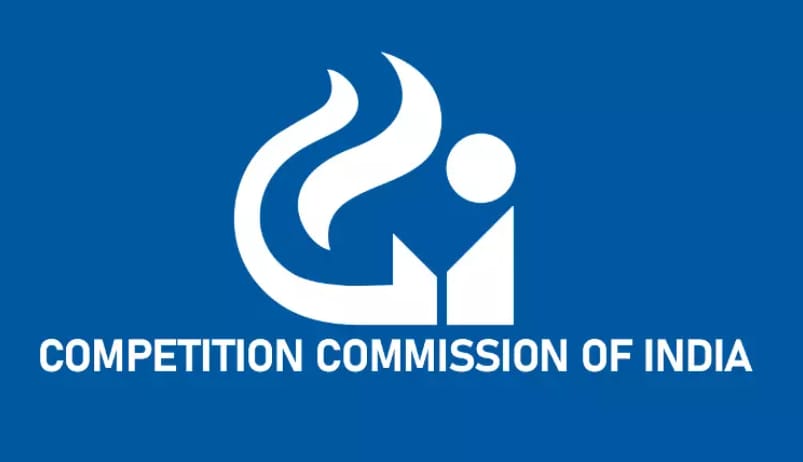The Competition Commission of India (CCI) has broadened its investigation into alleged malpractices in the advertising industry, with data obtained from advertising giants GroupM and Dentsu playing a key role in enhancing the focus toward Big Tech firms. Major advertisers believe the CCI’s actions could bring greater transparency to the digital advertising ecosystem.
Originally centered on potential cartelization and price-fixing among leading media agencies, the CCI’s probe has now been expanded toward the digital advertising space, with Big Tech companies under scrutiny. This focus of investigation is also largely due to digital evidence uncovered from GroupM’s records and information provided by Dentsu, which filed a leniency application, according to sources.
The investigation has raised critical questions about whether the digital advertising ecosystem will become more streamlined, especially as the CCI examines the Big Tech angle in the alleged media cartelization and price-fixing case.
GroupM and Dentsu are two major players in digital advertising space closely working with Big Tech firms in the country and globally. While the CCI’s raids primarily targeted GroupM, Dentsu is said to have acted as a whistleblower by submitting a leniency application. On March 18, CCI officials raided several major media agencies, including Dentsu, Omnicom, Havas, Madison, IPG, GroupM, and Publicis, as well as industry bodies like the Advertising Agencies Association of India (AAAI), the Indian Society of Advertisers (ISA), and the Indian Broadcasting and Digital Foundation (IBDF).
CCI officials suspect that certain Big Tech firms like Meta and Google may have played a role in influencing ad pricing, digital media spending, and long-term media-buying agreements. These deals could potentially reflect anti-competitive behavior, such as restricting fair competition, predetermining ad rates, or influencing bidding processes in favor of select companies.
Storyboard18 was the first to report that the CCI was expanding its investigation into alleged cartelization and price-fixing in the advertising industry by exploring a potential Big Tech connection during the raids. Officials have reportedly uncovered digital evidence suggesting Big Tech companies’ involvement in digital media-buying deals.
Read More: Breaking: CCI to expand media cartel probe, Big Tech & FMCG deals under scanner
A source familiar with the developments said, “The data collected from the top two agencies heavily involved in digital ad buying has opened new avenues for the CCI to investigate. The commission will likely issue notices to Big Tech firms, seeking details on advertisers and contracts signed with media agencies for further investigations.”
Many advertisers have raised concerns about undisclosed programmatic fees in digital advertising, where agencies may not fully reveal costs tied to programmatic ad buying—leading to a lack of transparency.
A senior advertiser and member of the Indian Society of Advertisers (ISA) said, “The CCI raids and their probe into media agencies will uncover long-standing issues around commissions and price-fixing, particularly in the digital advertising ecosystem involving Big Tech companies.”
The advertiser added, “There’s hardly any transparency in the system, leaving advertisers in a difficult position. They often end up being overcharged for running 360 degree campaigns and especially in the digital space.”
Past antitrust cases against tech giants like Google have highlighted concerns about self-preferencing, where companies prioritize their own services over competitors’, potentially stifling competition and driving up ad costs.
Another top advertiser noted, “Cost-per-click (CPC) and cost-per-thousand-impressions (CPM) rates have consistently risen, making digital advertising more expensive. Many small and mid-sized businesses struggle to compete against larger advertisers with bigger budgets.”
The advertiser further stated, “We suspect real-time bidding (RTB) systems may be manipulated to artificially inflate ad prices. The lack of transparency in auction dynamics makes it hard for advertisers to verify if they’re getting fair pricing.”
Experts argue that antitrust cases against Google, Amazon, and Meta have exposed a fundamental issue in the digital landscape: monopolistic power stifling competition and harming consumers. Their dominance has allowed them to manipulate markets, critics say.
Advertisers also face challenges with inconsistent ad performance reports, making it difficult to accurately measure campaign effectiveness and return on investment (ROI). Additionally, ad fraud and fake impressions remain major concerns, leading to wasted ad spend and doubts about the true impact of digital campaigns.
In 2023, the European Union introduced two landmark regulations—the Digital Services Act (DSA) and the Digital Markets Act (DMA)—reshaping the online landscape. The DSA, effective since August 25, 2023, empowers users to report illegal content and demands greater transparency from tech giants like Amazon, Apple, Meta, Google, and Zalando.
Legal experts suggest that this investigation could have far-reaching consequences for the advertising and digital media industry. If CCI establishes that major players engaged in anti-competitive practices, it could lead to hefty fines, regulatory action, and a complete overhaul of media-buying strategies in India.
Under Section 3(3) of the Competition Act, 2002, agreements between companies within the same industry that directly or indirectly determine pricing or restrict competition are illegal. The investigation will focus on uncovering evidence such as internal emails, pricing agreements, meeting records, or coordinated rate cards that could indicate anti-competitive behavior.
